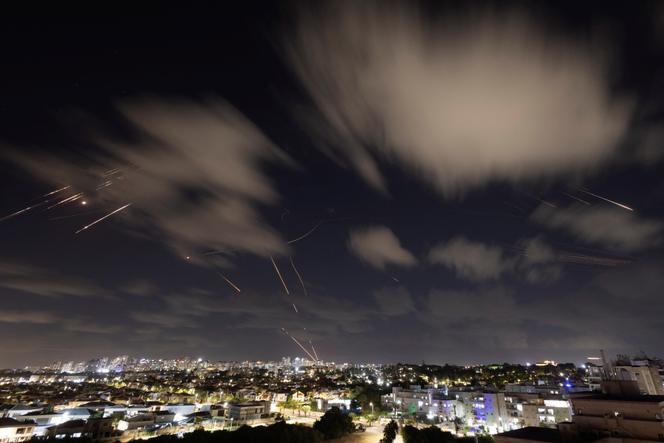


In central Israel, where the warning sirens were sounding, it was possible to catch a glimpse of them in the sky early in the evening of Tuesday, October 1: Small luminous traces that seemed to advance in a row and in significant numbers, before the dull explosions of the interceptions of these Iranian missiles, or those, much rarer, of their impact on the ground, in the vicinity of Tel Aviv or toward the Negev.
A few minutes earlier, an Israeli statement had called on the population to prepare to get to the nearest shelters because of the arrival of ballistic missiles which were to be fired from Iran and were expected to reach their targets much faster than during the previous Iranian strike on the night of April 13, during which various types of missiles and drones had taken up to several hours to reach Israeli territory.
In all, just under 200 ballistic missiles were fired on Tuesday evening. While specialists estimate that a significant proportion – up to a third – of these missiles generally failed to reach their destination, Israeli anti-aircraft defenses (Iron Dome, David's Sling, Arrow) were reinforced by American resources, from destroyers cruising in the region, to intercept as many as possible. French forces also took part in the operation. "Today, France has mobilized its military resources in the Middle East to counter the Iranian threat," said an Elysée press release issued on Tuesday evening. Several factors ensured that the Israeli defense system was not overwhelmed: its interception capabilities, of course, but also the lack of assistance that Hezbollah, rendered powerless by Israeli strikes, could have given Iran. Not to mention the Iranian government's discreet announcement of its intentions. According to Reuters, Iran warned Russia. An anonymous official claims that the United States had also been warned. A few hours before the attack, Washington indicated that the attack was imminent. An Israeli army statement on Wednesday morning said that preparations for these intercepts had begun "several days in advance," and had continued "during and after the Iranian attack."
The strike was not insignificant, however, both because of the number of missiles sent – twice as many as in April – and because of their high capacity, with recently modified versions of Iran's Fattah missile. These newly developed missiles are potentially equipped with "glider" capability. This would mean that their trajectory, as they approach their target, can be modified, making their interception more complex. "They are more precise and more effective than previous versions," noted Jeffrey Lewis, missile expert at the James Martin Center for Nonproliferation Studies at the Middlebury Institute in Monterey, California.
You have 59.32% of this article left to read. The rest is for subscribers only.
